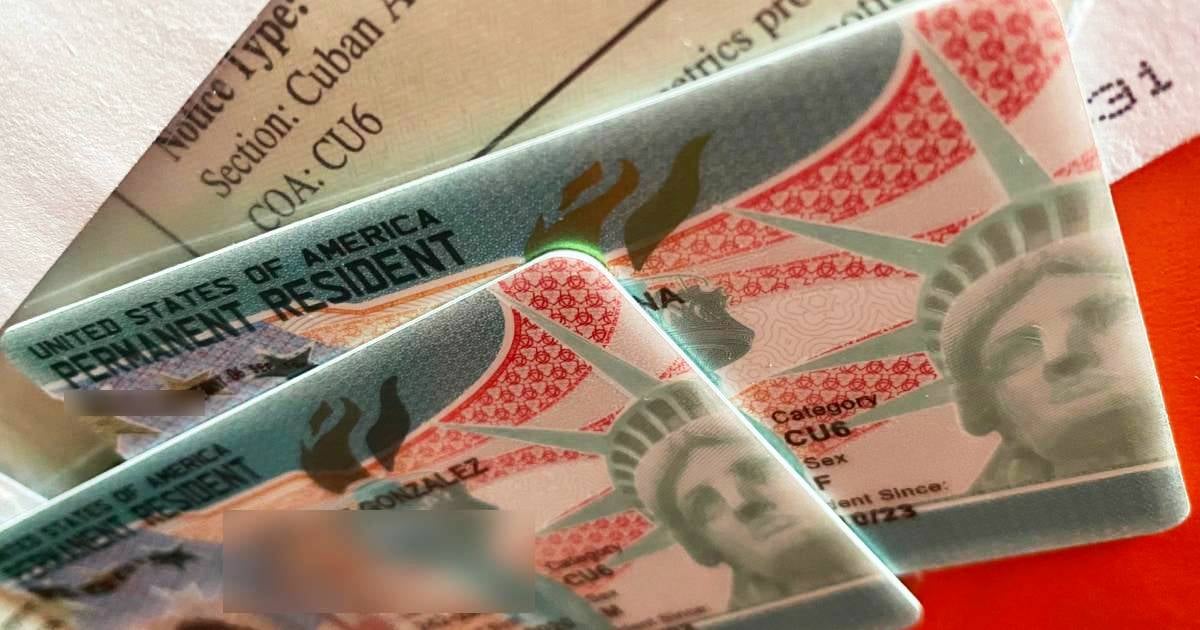If you're in the process of applying for permanent residency in the United States, it's essential to stay updated on the recent changes to Form I-485, used to adjust immigration status and obtain the coveted "Green Card." The U.S. Citizenship and Immigration Services (USCIS) has recently announced significant modifications that may impact the way applications are processed. As of October 24, a new form was introduced and will be the only accepted version starting February 10.
Critical Updates to Form I-485
Currently, there are three versions of the I-485 (Adjustment of Status) form in use, but from February 10, 2025, onward, only the version dated October 24, 2024, will be accepted. This change is part of a broader effort to streamline the application process and ensure consistency.
Mandatory Medical and Vaccination Report Submission
A notable alteration is the requirement to submit Form I-693, an immigration medical examination report, alongside Form I-485 if medical and vaccination information is needed. The USCIS has clarified that failure to submit the medical report with the permanent residency application may result in denial.
Immigration attorney Nelson A. Castillo explained to CNN that applicants traditionally submitted medical results after their initial application. However, simultaneous submission of both forms is now mandatory, which prevents expiration of these documents and eases the process. "The idea is that by sending them together, everything is processed correctly from the start," stated Castillo. It's worth noting that applicants under the Cuban Adjustment Act already included medical exams with their applications. However, from January 22, 2025, the USCIS will no longer require COVID-19 vaccination documentation in the medical exam. "USCIS will not deny any adjustment of status application based on the absence of COVID-19 vaccination proof," the agency posted on their website.
Removal of Form I-864W
The USCIS has decided to eliminate Form I-864W, which was previously required for certain applicants exempt from submitting an economic sponsorship affidavit. This information will now be incorporated directly into Form I-485, simplifying and streamlining the application process.
Attorney Castillo noted that this change will make it easier to file applications, as everything can be submitted at once without the need for an additional form.
Clarifications on Public Charge Inadmissibility
Form I-485 has also been revised to clarify questions regarding the "public charge" rule, which refers to immigrants relying on government aid. Applicants must now provide more precise information about their immigration category, allowing USCIS to determine if they are exempt from this inadmissibility ground.
Castillo added that this update aims to reduce confusion among applicants by giving them the opportunity to provide additional information if necessary.
Recommendations and Future Expectations
The USCIS claims these adjustments are intended to optimize information collection, consolidate requirements, and improve process efficiency. However, immigration attorney Elizabeth Uribe cautioned that while some aspects may become simpler, processing times might not necessarily decrease.
According to Uribe, the average wait time for obtaining a Green Card remains uncertain, and starting February 10, it could extend from six to 12 months. Although the new form has 24 pages instead of the previous 20, Uribe noted that this could reduce the number of requests for additional evidence since some processes previously handled separately are now combined. Nonetheless, she warned that stricter policies regarding missing documents or evidence could lead to an increase in denials.
Who is Eligible to Apply for a Green Card?
To be eligible for a Green Card, foreign nationals must meet at least one of the categories established by USCIS, which include:
- Immediate relatives of U.S. citizens or permanent residents.
- Skilled workers sponsored by a U.S.-based employer.
- Refugees or asylees meeting specific requirements.
- Beneficiaries of humanitarian programs.
Under "special programs" (page 7), the Cuban Adjustment Act is included, benefiting Cubans who have entered the country legally or have received parole at the borders.
Frequently Asked Questions About the New Green Card Requirements
What happens if I don't submit Form I-693 with my Green Card application?
Failure to submit Form I-693 with your Green Card application may lead to the application being denied, as it is now a requirement to submit both forms simultaneously.
Will the removal of Form I-864W make the application process easier?
Yes, the removal of Form I-864W simplifies the application process, as the information will now be included within Form I-485, reducing the need for additional paperwork.
Is the COVID-19 vaccine still required for the medical examination?
No, the COVID-19 vaccine will no longer be required in the medical examination starting January 22, 2025, according to the USCIS.
